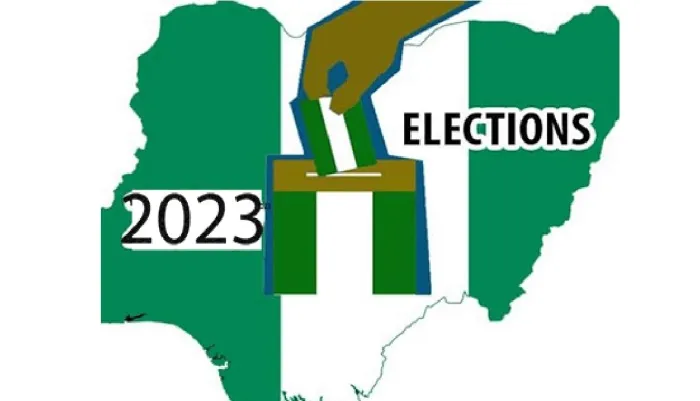Nigeria, as a nation, is facing her fair or unfair share of global challenges that are overwhelming even greater nations of the world. But if we can stand together as a nation and fight together, we shall overcome the storms because greater is He that is with us than he that is with our enemies. Our strength lies in unity, and division of any form is not the solution to our problem as some tribes and regions believe.
Living together in peace is all about accepting our differences and having the ability to listen to, recognize, respect and appreciate others.
We are a social species and we build complex societies. We band together for a myriad of reasons. The specific rules of societies may have changed who we allow to live together with, and how they can live together, but, we have always lived together, and always for the same reasons. We just might have to choose amongst different pools of potential cohabitants, or sometimes we have that choice made for us. But we always have need for tradition, companionship, economic support (or ‘survival’, if you prefer and can’t adjust the definition to apply to tribal communities without modern economies).
Nigeria may have diverse languages, but the cultures of most Nigerian ethnic groups are the same, pointing to the same roots in distant history and here is why. The cosmogony, religious rights, history and cultures of most Nigerians (Pre-colonial and Pre-Arabic influence) are largely the same, despite diversity in language.
- Qatar 2022: Nigerian fans salute African reps, chide Super Eagles
- FG to reduce Nigeria’s reliance on debt
We are all students of history. There were people who fought to keep this country one and in peace – the likes of Chief Obafemi Awolowo, Dr. Nnamdi Azikiwe, Sir, Ahmadu Bello and others. We must therefore pass this inherited peace to generations yet unborn. We all have a stake in this nation. It is not about a group of people; it is not about any religion; it is not about an individual; it is not about positions; it is all about our dear nation, Nigeria.
“I pledge to serve Nigeria with all my strength, so help me God”, thus goes a line in our national pledge. But when we victimize a fellow Nigerian because of his religion, political belief, tongue and/or tribe, then we have neither respect nor shown it for the genuine emancipation our forefathers fought for. Rather than immortalize them in our actions, we victimize them in our inactions against those we should protect.
How can we comfort those orphaned by senseless killings carried out by those who don’t have respect for the sanctity of life? No amount of compensation will fill the vacuum created in the hearts of the victims who always keep vigil, expecting the return of their loved ones but who will never return by dint of circumstances beyond their control.
All of this agony is caused by our selfishness. We pursue elusive things of life, like buying/building gigantic houses, becoming business tycoon, living affluent lives with family members, establishing businesses abroad and here in Nigeria, all of which are vanity.
All around the world, first time records are being made. There are new scientific discoveries; new architectures take the place of old ones. Yesterday’s trends/fashions become outdated as years roll by. And when death completes the circle of vanity of life, even the most cherished possession of the dead is left behind.
The absurdity in Nigeria is more perplexing than what any mind can dream of. Respectability and accountability died in Nigeria long ago and there is no difference between statesmen and those who seek to execute us. There is neither honour nor integrity in governance in Nigeria, and the more our democratic culture regresses, the easier it gets for our leaders to empty their bowels right on our heads.
What we really need in Nigeria today is attitudinal change; even towards our culture, religious belief, tribes and tolerance. The more we tolerate ourselves, the more we stay together as one entity and do things in common. We should drop the habit of looking at one another as Hausa, Yoruba, Igbo. We were colonized together and given independence together, so why the division and sentiment now? Let’s be united to move this country forward.
Nigeria is a beautiful country, the most formidable promise of the African people. It started well at independence and her people had learnt to live together peacefully until the setback of the Civil War triggered by the 1966 military coup. The fantastic testament of our peaceful co-existence and integration includes such occasions as when the mainly Christian voters of Gboko elected a Kanuri Muslim man, Abubakar Imam, to represent them in the Northern State Assembly. It includes when Chief Obafemi Awolowo campaigned for Ernest Ikoli, an Ijaw man in the Lagos elections, against a fellow Ijebu man, Akinsanya. In the early 1960’s right to the 70s, easterners like Kalu Anya served in Borno Judiciary, as well as Justice Olagunju – a Yoruba man from Offa, who trained many jurists in the Sokoto Division.
Today’s setbacks are not conclusive evidence of our inability to live together, but challenges we must overcome, as even the most advanced countries of the world such as the United States of America, United Kingdom, Spain, and France still grapple with issues of identity. Nigerians up till today are still more tolerant of each other than the separatist propaganda wants us to believe.
It is about what happens inside our houses; that is where society starts from. A peaceful Nigeria starts with me and you. It is our collective destiny to live beyond 2023.
Nigeria shall live beyond 2023!
Òrúnbon wrote from Lagos

 Join Daily Trust WhatsApp Community For Quick Access To News and Happenings Around You.
Join Daily Trust WhatsApp Community For Quick Access To News and Happenings Around You.


